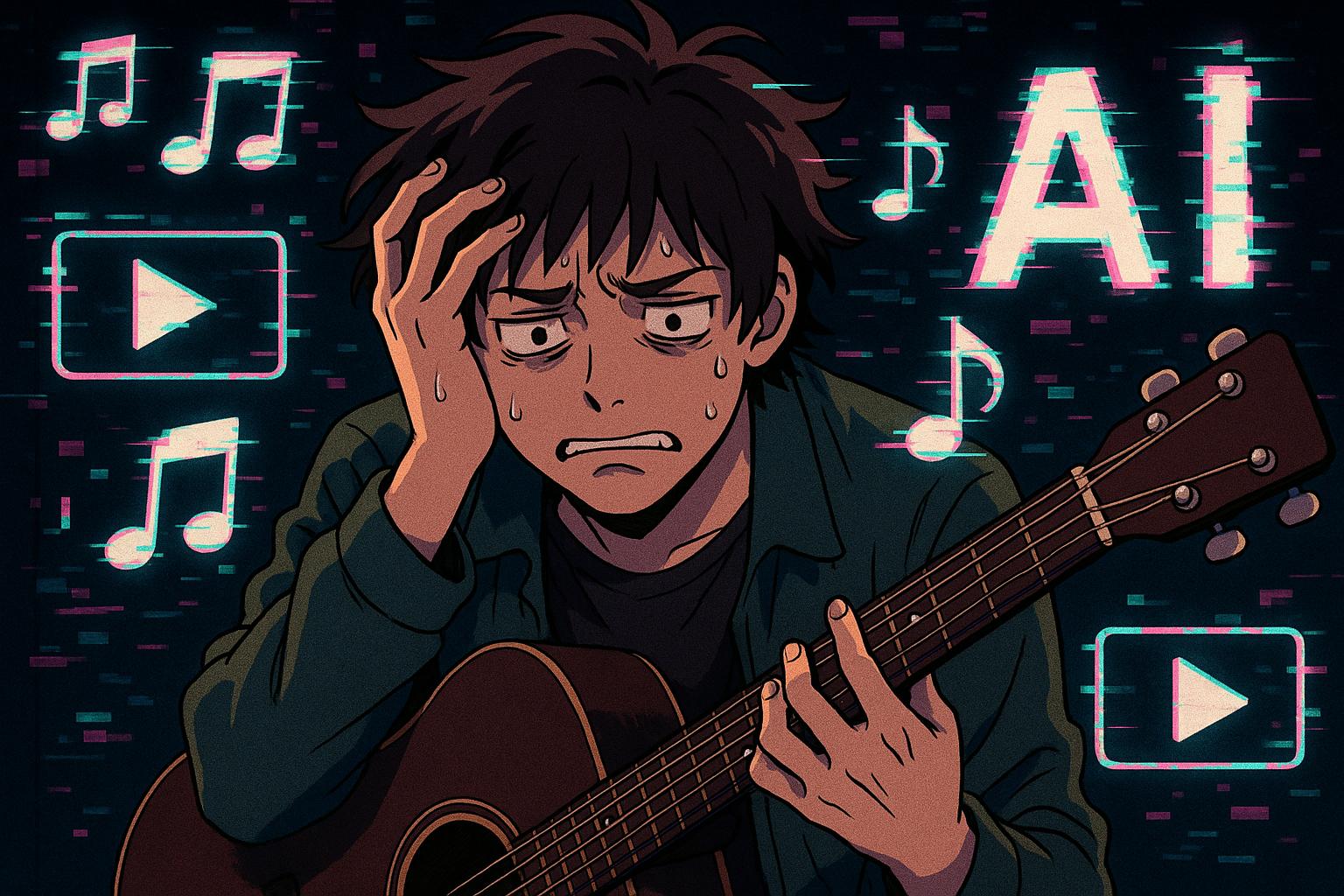The music industry is currently embroiled in a fierce battle against the manipulation of streaming services, a conflict that has left numerous innocent indie artists as collateral damage. As fraudsters flood platforms like Spotify and Apple Music with AI-generated tracks designed to siphon off royalty revenues, the landscape for genuine musicians grows increasingly perilous. These fraudulent tracks, produced swiftly and cheaply, have surged significantly; Deezer reported in April that more than 20,000 fully AI-created tracks—18% of new content—are uploaded daily, nearly double the figures from earlier in the year.
Fraudsters employ various tactics to exploit streaming services, from using bots and AI to trigger multiple streams on these faux songs, to hijacking real artists' pages and diverting royalties. While platforms like Spotify claim to dedicate substantial engineering resources to combat this issue, they struggle to keep the problem in check. Apple Music's assertion that less than 1% of streams are manipulated may provide some solace, yet experts suggest this could translate to hundreds of millions of dollars annually lost to fraud in a $20.4 billion global streaming market.
The ease of entry into music streaming for artists has been matched by a parallel increase in opportunities for fraudsters. Darren Owen, chief operating officer of music distribution service Fuga, indicated that the issue has escalated since 2021, now occupying half of his workload. As fraud detection becomes more sophisticated, Fuga utilises AI to analyse listening patterns, assigning a "severity score" to identify non-human activity in streams, particularly in regions like India and eastern Europe, which are hotspots for click-farm operations.
These deceptive practices extend beyond obscure websites; even major entities face allegations. For instance, Universal Music Group has been accused by rapper Drake of conspiring to artificially inflate the play count on Kendrick Lamar's diss track, although UMG denies the allegations. Individual artists have reported their music being taken down following sudden spikes in streams, an automatic process that often lacks transparency. Darren Hemmings, a musician and managing director of music marketing firm Motive Unknown, illustrated the dilemma: his distributor flagged a song as manipulated after a surge in popularity, leaving him powerless to defend his integrity.
The impact on these artists is profound. Bands like Northern Irish rock group Final Thirteen have faced similar issues, where their songs were removed following increased play counts they believe stemmed from legitimate exposure, such as radio plays. Similarly, indie musician Adam J Morgan of Naked & Baked expressed frustration with his distributor's decision to flag his track after a surge attributed potentially to TikTok use. The absence of robust evidence supporting such actions compounds the feeling of helplessness felt by many artists, who are often left navigating an opaque appeals process.
Matthew Whiteside, an artistic director at TNW Music, highlighted a particular difficulty faced by smaller and niche artists, suggesting that the current system inherently disadvantages them. After enduring repeat takedowns of his work, he posited that paying the resubmission fee for each removed album could be untenable for artists operating on tight budgets. Deezer has claimed to lead the fight against streaming manipulation, having implemented dedicated fraud detection systems designed to flag suspicious activity, yet the shortcomings in other systems leave many feeling vulnerable.
The ramifications of this battle extend beyond immediate financial losses; many artists are re-evaluating their presence on major streaming platforms. Darren Owen cautioned that the latest trend involves fraudsters boosting multiple tracks marginally rather than inflating a few significantly, making detection even more challenging. As such, figures in the industry suggest that many independent acts may consider shifting to alternative platforms like Bandcamp to seek fairer revenue models.
While regulators and digital platforms scramble to address these complexities, the situation underscores a deeper crisis affecting the future of music in the digital age. With streaming services operating as a double-edged sword, artists must now contend with the reality that their careers are as much at the mercy of fraud as they are of listeners. In this evolving landscape, the survival of indie artists may hinge on reforms that protect their rights, along with transparency and fairness in a market increasingly dominated by illicit practices.
📌 Reference Map:
- Paragraph 1 – [1], [2]
- Paragraph 2 – [1], [3], [4]
- Paragraph 3 – [5], [7]
- Paragraph 4 – [1], [6]
- Paragraph 5 – [1], [2], [6]
- Paragraph 6 – [1], [5]
- Paragraph 7 – [1], [4], [6]
- Paragraph 8 – [1], [3]
- Paragraph 9 – [1], [2]
Source: Noah Wire Services
